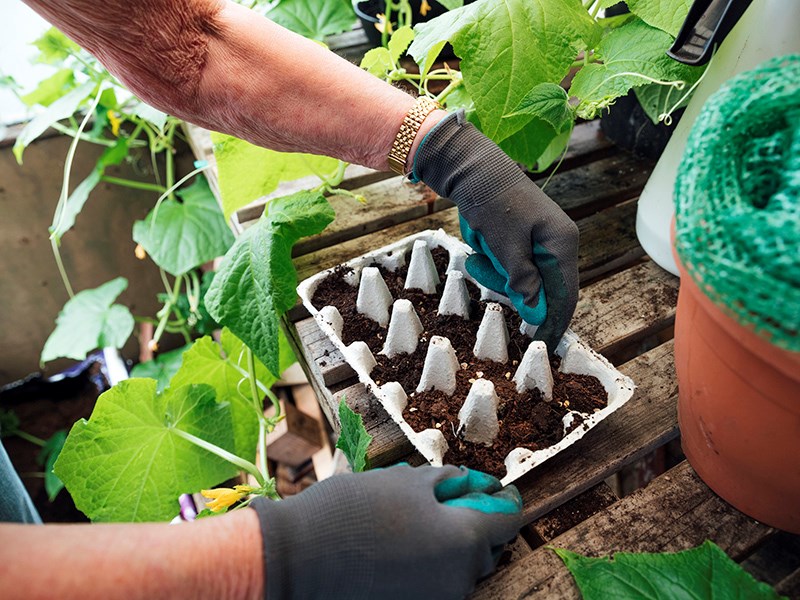The last gasps of winter are giving way to hopeful spring blossoms. Green thumbs are waking alongside the tulips, scanning seed catalogues and sketching out garden bed plans.
Perhaps you joined the throngs of pandemic gardeners last year who found themselves inspired to get more locally resilient, or you may be decades into growing roots and shoots. Regardless of your experience, if you are planning to reap a harvest this summer, how can you best achieve zero waste success along the way?
Access to locally grown seeds can be challenging given the closure of Seedy Saturday events for the second year in a row. Thankfully, locals are working around this and a Facebook group has cropped up focused on the gifting, requesting, bartering, swapping and selling of locally produced seeds within the qathet region. The Seed Traders of Powell River group allows residents to post offers and requests for seeds directly to group members without any gatekeeper.
Garden shops that sold out of seeds early last year are preparing in advance for the expected deluge of seed-hungry gardeners. To avoid wasteful purchases, also known as having eyes bigger than your garden bed, bring a shopping list, or plan to share seed packets with friends and neighbours.
Seed trays from previous years can be reused and alternatives easily drummed up from your recycling bin. Effective mini greenhouses can be fashioned out of plastic “clamshell” containers for salad and baked goods, and toilet paper rolls are great for plants with sensitive roots as you can transplant them directly into the soil. Folded newspaper can also be a simple but durable temporary seeding pot until it’s time to place the starts in the thawed soil.
To label seed trays, how about using bread bag tags, or cutting up a yogurt container into strips and staking it in the soil?
Now is a great time to look for plastic-free garden resources. Cardboard makes an excellent weed suppressant, once all tape and stickers have been removed. You might still be able to get stashes of fall leaves from your lawn or a friend’s who might even have raked them into a tidy pile. When applied thickly, these insulate your early spring plants, suppress weeds and provide food for the soil as they break down.
Don’t have garden space? Support local growers at the coming farmers’ markets or buy market “bonds” from the various community supported agriculture programs available. These involve pre-purchasing produce before the growing season, investing alongside the farmers and better understanding that each year favours different crops.
Ask around about community garden plots, or neighbours who would love to have you bring their fallow land back to a veggie patch. These organic relationships often manage to work on good will, clear communication and some vegetable trades.
Think you don’t have enough space to grow at home? Consider making the most of the spaces and microclimates you do have. Many herbs will grow well on the steps up to a house or in kitchen windowsills. Cold-hardy plants that are great producers even in small plots include kale, collards and chard.
There’s never been a better time to put down local roots. Happy planting!
Let’s Talk Trash is qathet Regional District’s waste-reduction education program. For more information, email info@LetsTalkTrash.ca or go to LetsTalkTrash.ca.

